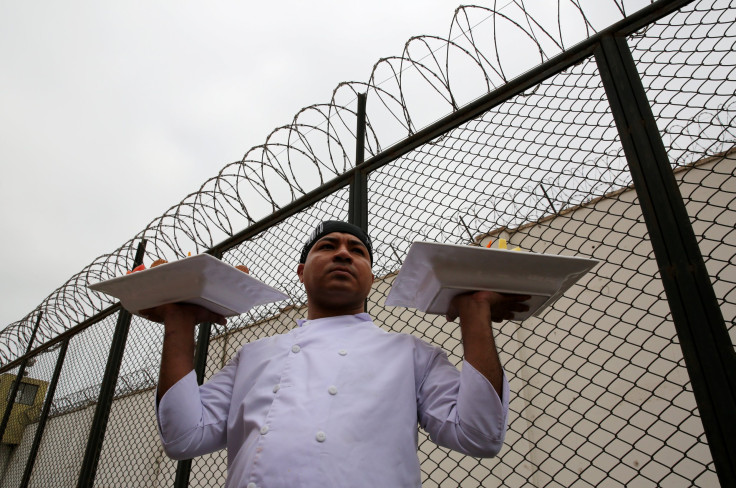Legalizing Cannabis: Prison Food Provider Donates To Keep Marijuana Illegal In Arizona

A deep-pocketed coalition is spending big to keep marijuana illegal in Arizona. Drug companies, the Chamber of Commerce, and the alcohol industry, have together poured millions of dollars into the campaign to defeat Proposition 205, a ballot measure that would legalize marijuana for those over 21. And as opinion polls show a tight race, another industry entered the fray: prison food providers.
Services Group of America, whose subsidiary Food Services of America sells meals to correctional facilities, devoted $80,000 to defeat the measure in late September. The money-flow was first revealed by Tom Angell, the chairman of the pro-legalization nonprofit Marijuana Majority.
Arizona is one of five states -- including California, Maine, Massachusetts and Nevada -- where marijuana legalization is on the ballot in November. With polls in Arizona showing a particularly tight race, money is pouring in from groups trying to tip the balance in the homestretch.
The main anti-legalization group, Arizonans for Responsible Drug Policy, has raised nearly $2.7 million — $900,000 in the last three weeks alone. Pro-legalization groups raised more than $3 million — including over $100,000 last week from the company that makes Dr. Bronner’s Magic Soap.
On both sides of the issue, donors writing checks have business interests at stake. The legalization-side is largely funded by through the Marijuana Policy Project, which takes donations from dispensary owners and marijuana entrepreneurs. The largest donor to the prohibitionists' side is the drug-maker Insys Therapeutic—which is developing synthetic marijuana product of its own. In addition to a $500,000 donation from Insys Therapeutic, the Chamber of Commerce of commerce spent $498,000, and Arizona Wine and Spirits Wholesale Association devoted $10,000.
Services Group of America’s donation seems to fit into that trend: Around 20 percent of those incarcerated in Arizona are drug offenders. The company, which is privately owned, sells food services to a range of facilities including schools, hospitals and cruise ships -- it's not clear what portion of its business involves prisons and jails, and how many of those facilities are in Arizona.
In 2013, a jail in Montana that contracted with Food Services of America was at the center of a scandal after local reporters discovered that some days, inmates were fed only 1,782 calories — far less than the recommended daily intake.
While pro-legalization groups have outraised their opponents, they spent most of the money collecting signatures to get the initative on the ballot. Over the course of the campaign, anti-marijuana groups outspent them 6-1, according to an analysis by ABC News Arizona affiliate.
Flush with cash, Arizonans for Responsible Drug Policy has been running TV ads, warning voters that the initiative would hurt the state’s already functioning medical marijuana dispensaries. The fact-checking website PolitiFact rated the ads “mostly false.”
© Copyright IBTimes 2025. All rights reserved.





















